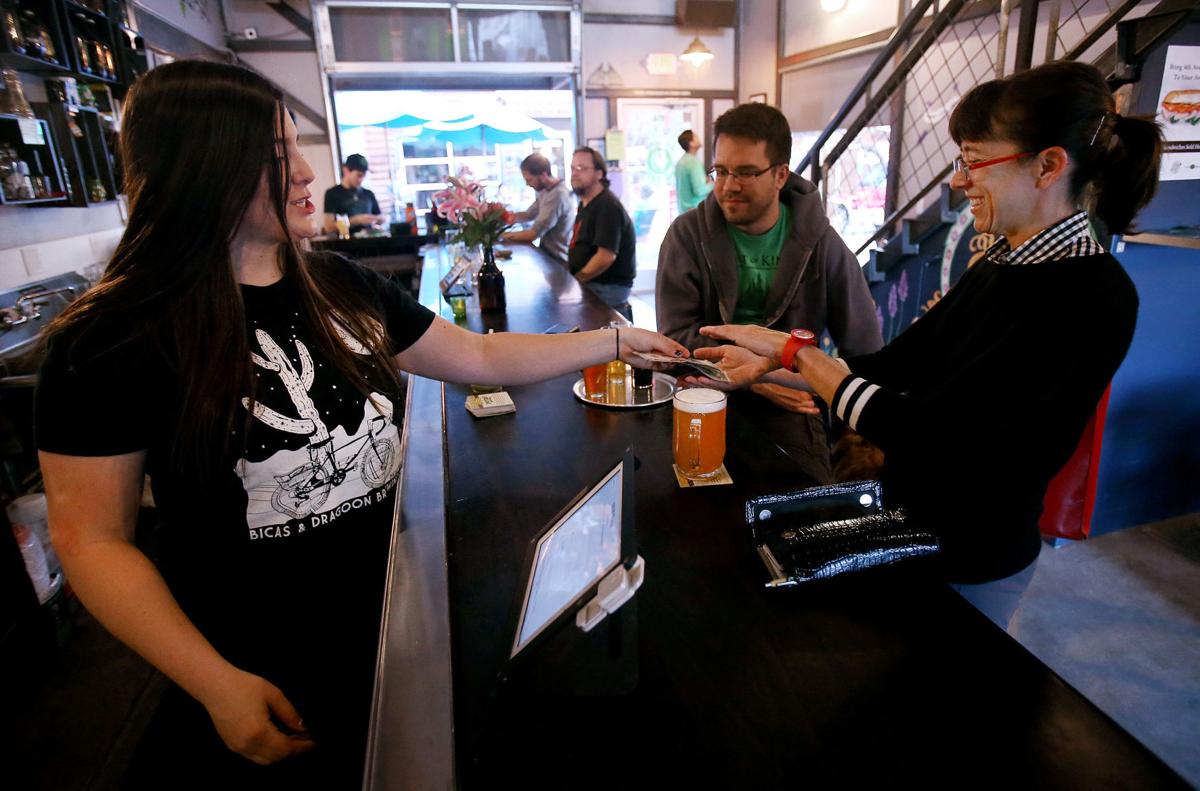Remember those claims during the Proposition 206 debate that increasing the minimum wage would lead to less hiring and people being laid off from low-wage jobs?
The latest unemployment statistics suggest that hasnтt happened.
In fact, the data from the state Office of Economic Opportunity shows that the number of people working in bars and restaurants last month not only increased but did so at a rate six times higher than the economy as a whole. Employers who run food-service and drinking establishments added 7,800 new workers compared with February, a 3.3 percent boost.
By contrast, month-over-month employment in the private sector for the entire state grew just 0.5 percent.
Overall, there are now 242,800 people in that sector of the economy, 8 percent more than there were a year ago. That compares with a 2.5 percent increase in all private-sector employment in the past year.
People are also reading…
This does not just appear to be a one-year bump in employment.
Doug Walls, the research administrator for the agency, said the entire leisure and hospitality sector, which also includes hotel workers and those who work in the entertainment industry, said employment growth in this sector for the first three months between 2010 and 2016 averaged about 9,500. But for the first three months of this year, the number of jobs is up 14,200.
The new figures come despite the fact that the stateтs minimum wage, which had been $8.05 an hour last year, is now $10. Both figures can be $3 less for those who earn tips, provided the employer can show their workers actually got that much.
It was the УлшжжБВЅ Chamber of Commerce and Industry that led the opposition to Proposition 206 with claims there would be fewer entry-level and low-wage jobs as employers culled payrolls to cover the higher expenses. But organization spokesman Garrick Taylor said the strong employment growth numbers do not necessarily mean those fears were unwarranted.
тI think it points to the fact that this governor and legislature have done all they can to put pro-growth policies in place that will blunt the negative impact of a mandated wage increase foisted on employers who rely on entry-level labor,т he said.
But Taylor could not explain why those policies did not result in the same strong growth across the stateтs economy that showed up in food and drinking places.
тWe would like to be proven wrong,т he said.
Anyway, Taylor noted, what happened on Jan. 1 is not the last word, with Proposition 206 pushing the minimum wage to $12 by 2020.
тWe are in the early stages of this dramatic mandated wage increase,т he said. тLetтs hope these numbers remain strong, but we have our concerns.т
Economist Dennis Hoffman of the W.P. Carey School of Business at УлшжжБВЅ State University, said there may be several things that led to this yearтs strong growth in these jobs.
One of those, he said, is the fact that the Chicago Cubs won the World Series last year, leading to increased interest in people coming to УлшжжБВЅ to watch spring training.
But Hoffman said that no matter what, the job growth, even in the face of rising wages, canтt be denied.
тAny headwinds that might have been created by mandated higher labor costs have clearly been offset by tailwinds in the industry that have created a demand for workers,т he said.
Overall, the stateтs seasonally adjusted unemployment rate dropped a tenths of a point last month, to 5.0 percent. The economy added 11,200 private-sector jobs, a figure more or less in line with the average of 11,900 since the end of the recession.
While jobs in leisure and hospitality grew at the strongest rate, some other sectors actually lost employment. That includes manufacturing, which shed 1,300 jobs last month, much of that due to losses in employment in both the aerospace industry as well as the production of non-durable goods, things like food, snacks and sodas.
Retail trade also continued its lackluster showing, losing 200 jobs. While there were gains in some sectors, like employment in stores that sell building materials and gardening supplies, they were offset by the loss of 600 jobs in department stores as shoppers shift their buying habits online.
On Twitter: @azcapmedia








